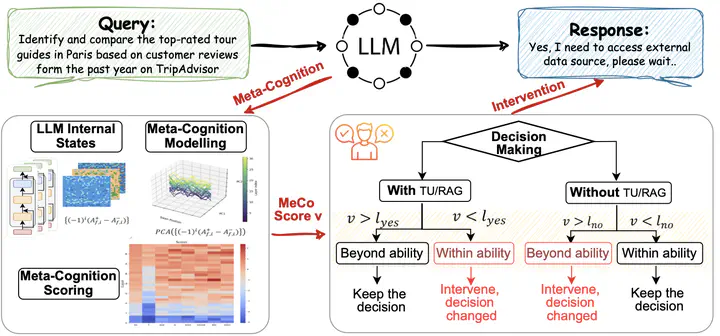
Abstract
Large language models (LLMs) have shown remarkable emergent capabilities, transforming the execution of functional tasks by leveraging external tools for complex problems that require specialized processing or real-time data. While existing research expands LLMs access to diverse tools (e.g., program interpreters, search engines, weather/map apps), the necessity of using these tools is often overlooked, leading to indiscriminate tool invocation. This naive approach raises two key issues:(1) increased delays due to unnecessary tool calls, and (2) potential errors resulting from faulty interactions with external tools. In this paper, we introduce meta-cognition as a proxy for LLMs self-assessment of their capabilities, representing the model’s awareness of its own limitations. Based on this, we propose MeCo, an adaptive decision-making strategy for external tool use. MeCo quantifies metacognitive scores by capturing high-level cognitive signals in the representation space, guiding when to invoke tools. Notably, MeCo is fine-tuning-free and incurs minimal cost. Our experiments show that MeCo accurately detects LLMs’ internal cognitive signals and significantly improves tool-use decision-making across multiple base models and benchmarks.